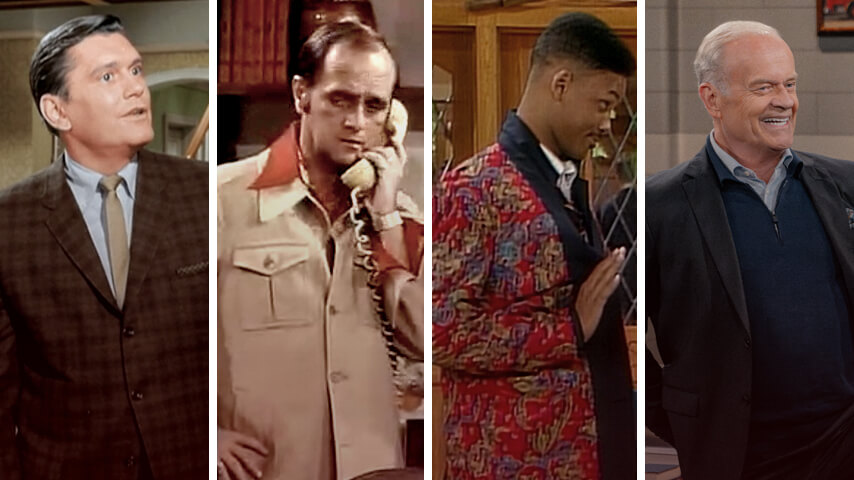The facts of the so-called fertility crisis are well publicized: Birth rates in the United States have been trending down for nearly two decades, and other wealthy countries are experiencing the same. Among those proposing solutions to reverse the trend, the conventional wisdom goes that if only the government were to offer more financial support to parents, birth rates would start ticking up again.
But what if that wisdom is wrong?
In 1960, American women had on average 3.6 children; in 2023, the total fertility rate (the average number of children a woman expects to have in her lifetime) was 1.62, the lowest on record and well below the replacement rate of 2.1. Meanwhile, rates of childlessness are rising: In 2018, more than one in seven women aged 40 to 44 had no biological children, compared with one in 10 in 1976. And according to a new report from Pew Research Center, the share of American adults younger than 50 who say they are unlikely to ever have children rose 10 percentage points between 2018 and 2023, to 47 percent. In mainstream American discourse, explanations for these trends tend to focus on economic constraints: People are deciding not to have kids because of the high cost of child care, a lack of parental leave, and the wage penalty mothers face. Some policy makers (and concerned citizens) suggest that expensive government interventions could help change people’s minds.
But data from other parts of the world, including countries with generous family policies, suggest otherwise. Today, every OECD country except Israel has a below-replacement fertility rate, and the speed of the decline during the past decade has outpaced demographers’ expectations. In 2022, the average fertility rate of European Union countries was 1.46; in 2023, South Korea’s was 0.72, the lowest in the world.
South Korea has spent more than $200 billion over the past 16 years on policies meant to boost fertility, including monthly stipends for parents, expanded parental leave, and subsidized prenatal care—yet its total fertility rate fell by 25 percent in that time. France spends a higher percentage of its GDP on family than any other OECD member country, but last year saw its lowest number of births since World War II. Even the Nordic countries, with their long-established welfare states, child-care guarantees, and policies of extended parental leave, are experiencing sharp fertility declines.
Policy shifts that make life easier and less expensive for parents are worthwhile in their own right. But so far, such improvements haven’t changed most countries’ low-fertility rates. This suggests the existence of another, under-discussed reason people aren’t having kids—one that, I have come to believe, has little to do with policy and everything to do with a deep but unquantifiable human need.
[Read: To have or not have children]
That need is for meaning. In trying to solve the fertility puzzle, thinkers have cited people’s concerns over finances, climate change, political instability, or even potential war. But in listening closely to people’s stories, I’ve detected a broader thread of uncertainty—about the value of life and a reason for being. Many in the current generation of young adults don’t seem totally convinced of their own purpose or the purpose of humanity at large, let alone that of a child. It may be that for many people, absent a clear sense of meaning, the perceived challenges of having children outweigh any subsidy the government might offer.
In his 1960s work on the economics of the family, the Nobel Prize–winning economist Gary Becker theorized that household decisions, including fertility choices, could be analyzed through an economic lens. More specifically, children could be analogized to goods, like a house or a car; the number that parents had was related to what they could afford in terms of time and money. By this logic, making the goods less expensive—expanding household budgets via subsidies, return-to-career guarantees, and other financial carrots—should be enough to push parents to have more kids.
Governments have generally hewed to this assumption when launching pronatal policies. But two new books exploring why people do or don’t have children—works that take wildly different approaches to the question—suggest that this method is flawed.
[Read: Would you have a baby if you won the lottery?]
In Hannah’s Children: The Women Quietly Defying the Birth Dearth, Catherine Ruth Pakaluk, an economist and a Catholic mother of eight, compiles interviews with 55 women from across the United States who have five or more children—hers is a qualitative study of Americans happily breaking from the low-birth-rate norm. Connecting the author and her unusual subjects (only about 5 percent of U.S. mothers have five or more kids) is a shared certainty that children are an unqualified good, and that raising them is an activity freighted with positive meaning.
Then there are those who are much less sure. In What Are Children For? On Ambivalence and Choice, Anastasia Berg, an academic and editor at The Point, and Rachel Wiseman, an editor at the same magazine, engage literature, philosophy, and anti-natalist texts to wrestle with whether children are worth having at all. The decision is described as “paralyzing” and “anxiety-provoking,” to be approached with trepidation (even though the authors find individual clarity by the end). But their book echoes Pakaluk’s in one striking respect: Both works share the view that current political strategies for encouraging people to have children are lacking a crucial element. “As attractive as economics may be as a solution to the riddle of the growing ambivalence about having children, it is partial at best,” Berg and Wiseman write. Pakaluk observes, “Cash incentives and tax relief won’t persuade people to give up their lives. People will do that for God, for their families, and for their future children.” In other words, no amount of money or social support will inspire people to have children—not unless there is some deeper certainty that doing so makes sense.
In many quarters, that sort of certainty has become elusive. Indeed, Berg and Wiseman dwell on its opposite: anxiety about whether having children is good or whether it’s an imposition, a decision that might deprive a person of individual fulfillment or even make the world worse in the long run—by, for instance, contributing to climate change, overpopulation, or the continuation of regressive gender norms. “Becoming a parent,” they write, “can seem less like a transition and more like throwing yourself off a cliff.”
The authors touch on the standard narratives of why young people are delaying or forgoing children—financial anxiety, difficulty finding a partner, worries that having kids will be incompatible with their career—but these they describe as “externals,” borrowing a term from the family therapist and author Ann Davidman, not the core concern. One of their interviewees notes that if money were no object, she would be “at least neutral” on the subject of having a child, which is still some distance from positive. Instead, more existential worries emerge, pointing to a loss of stabilizing self-confidence among recent generations, or to the lack of an overarching framework (religious or otherwise) that might help guide people toward a “good” life. “The old frameworks, whatever they were, no longer seem to apply,” Berg and Wiseman write. “And the new ones provide us with hardly any answers at all.”
[Read: The two ways to raise a country’s birth rate]
The mothers whom Pakaluk profiles approach childbearing with far less ambiguity. As one told her, “I just have to trust that there’s a purpose to all of it.” Her interviewees’ lives are scaffolded by a sincere belief in providence, in which their religious faith often plays a major role. These mothers have confidence that their children can thrive without the finest things in life, that family members can help sustain one another, and that financial and other strains can be trusted to work themselves out. And although the obvious concerns are present—women describe worries about preserving their physical health, professional standing, and identity—they aren’t determinative. Ann, a mother of six, tells Pakaluk that she doesn’t feel “obliged” to have a large family but that she sees “additional children as a greater blessing than travel, than career … I hope we still get to do some of those things, but I think this is more important. Or a greater good.”
It’s a deceptively simple claim—and reinforces the notion that if people are going to have children, they need more than a hunch that human life is valuable. “It is not just the possibility of goodness but its actuality that fuels our deepest longing to ensure a human future,” Berg and Wiseman propose. And yet, we live in a time when even those who are certain about having kids are sometimes treated with skepticism. To proclaim that parenthood could be a positive experience is, in some circles, slightly gauche. “To assert the goodness of one’s own life,” the authors write, “is to risk coming across as privileged, or just hopelessly naive.”
Contrast that with the attitude of Hannah, a mother of seven who tells Pakaluk that each new child “brings benefit to the family and to the world.” She and the other mothers exemplify what happens when meaning is deeply internalized: Many children tend to result—and, according to these women, bring joy with them.
Of course, joy is a hard thing for any policy to promise. Government agencies rely on stats—income, years, “productivity”—to make the case for interventions, and tend to overlook the unmeasurable. Intangible incentives such as purpose, belonging, and love don’t always seem rational. As Robert F. Kennedy put it in a 1968 speech at the University of Kansas, delivered less than three months before he was assassinated: “The gross national product does not allow for the health of our children, the quality of their education, or the joy of their play … It measures neither our wit nor our courage, neither our wisdom nor our learning, neither our compassion nor our devotion to our country; it measures everything, in short, except that which makes life worthwhile.”
Kennedy was, essentially, urging Americans to pursue meaning, suggesting that only by doing so would they have the fortitude to fight despair. But “meaning” is not something governments can easily provide; it tends to stem from uniting in the face of undesirable crises (wars, pandemics) or from the sorts of broadly enforced norms (religious, cultural) that many no longer share. (This could be a clue as to why Israel has bucked the low-birth-rate trend: The religious edict to “be fruitful and multiply” is an accepted part of the national culture, and childbearing is viewed as a contribution to a collective goal.)
Politically, there’s very little upside—and often significant downside—in pointing to abstractions without easy solutions. If falling birth rates can be attributed to a loss of meaning, the question then becomes if there can be any government-based solution to fertility decline. People debating whether to have children seem to be seeking certainty that life is a good thing, that more life would thus be better, and that assistance, if needed, will arrive. Government policy can help with the last part. The first two assurances will most likely come only from another source.


